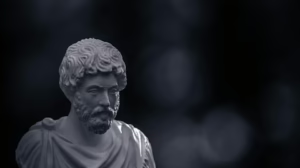Deep Dives: The Philosophy Books That Challenge Conventional Wisdom
Introduction
Philosophy, often regarded as the love of wisdom, invites us to question the very foundations of our beliefs and perceptions. It challenges conventional wisdom by encouraging analytical thinking and reflection on complex subjects. This article explores several influential philosophy books that prompt readers to reconsider societal norms and ideological assumptions.
Section 1: Why Philosophy Matters
Philosophy matters because it sharpens our critical thinking skills, broadens our intellectual horizons, and deepens our understanding of both ourselves and the world around us. The significance of philosophy lies in its ability to critique established norms and encourage dialogue, thereby pushing the boundaries of human thought. Renowned philosopher Martha Nussbaum articulates this concept well in her works, asserting that critical engagement with philosophical ideas promotes a more humane society[1].
Section 2: Books That Challenge Conventional Wisdom
2.1 “Beyond Good and Evil” by Friedrich Nietzsche
Friedrich Nietzsche’s work often serves as a wake-up call to readers entrenched in conventional morality. In “Beyond Good and Evil,” Nietzsche questions the binary morality that categorizes actions as solely good or evil. He argues that traditional moral frameworks, particularly those influenced by religion, constrain human potential and creativity. Instead of adhering to absolute truths, Nietzsche advocates for a more nuanced understanding of morality based on individual perspectives and societal contexts[2].
2.2 “The Structure of Scientific Revolutions” by Thomas S. Kuhn
In “The Structure of Scientific Revolutions,” Thomas Kuhn challenges the conventional notion of scientific progress as a steady, cumulative process. He introduces the concept of “paradigm shifts,” where scientific advancements occur through abrupt changes in foundational frameworks rather than gradual developments. This book redefines our understanding of knowledge and science, suggesting that objectivity is often colored by subjective paradigms that govern scientific inquiry[3].
2.3 “Simulacra and Simulation” by Jean Baudrillard
Jean Baudrillard’s “Simulacra and Simulation” critiques contemporary society’s relationship with reality and representation. He posits that in our postmodern age, hyperreality—a condition where the distinction between reality and simulation blurs—has become the new norm. Baudrillard’s arguments lend themselves to our current digital landscape, compelling readers to question the authenticity of experiences consumed through media and technology[4].
2.4 “The Second Sex” by Simone de Beauvoir
In “The Second Sex,” Simone de Beauvoir critiques the historical subjugation of women and challenges the traditional gender roles entrenched in society. She emphasizes the notion that one is not born a woman but rather becomes one, thereby questioning essentialist interpretations of gender. Beauvoir’s work not only laid foundational ideas for feminist philosophy but also compelled society to reevaluate the social constructs of gender and power[5].
2.5 “The Myth of Sisyphus” by Albert Camus
Albert Camus’ “The Myth of Sisyphus” confronts the absurdity of human existence. By using the myth of Sisyphus, who is condemned to repeat an endless task, Camus illustrates the struggle for meaning in a seemingly indifferent universe. This work challenges the conventional wisdom that life must have a definitive purpose, suggesting instead that embracing the absurd can lead to a more fulfilled existence[6].
Section 3: The Impact of Challenging Conventional Wisdom
The aforementioned texts illustrate how challenging conventional wisdom can pave the way for personal growth, societal progress, and philosophical advancement. By questioning established norms, we foster innovative ideas and encourage critical discourse.
3.1 Personal Growth
Philosophy encourages us to confront uncomfortable truths, leading to significant personal development. Engaging with works that challenge conventional wisdom allows individuals to reassess their beliefs, align their values with their experiences, and cultivate a more authentic self. As noted by philosopher Richard Rorty, “the aim of philosophy is to make us see that our beliefs are contingent”[7].
3.2 Societal Progress
When societal norms are questioned and re-evaluated, progress becomes possible. For instance, feminist philosophy, as presented in de Beauvoir’s work, has significantly influenced debates surrounding gender equity. Similarly, Nietzsche’s critique of morality has paved the way for existentialist thought, shaping modern ethics and individualism. By challenging the status quo, philosophy acts as a catalyst for societal change.
3.3 Philosophical Advancement
The evolution of philosophical thought often arises from the challenge of conventional wisdom. As thinkers like Kuhn demonstrate, scientific paradigms evolve, leading to deeper understanding and new methodologies. Philosophers build on each other’s critiques, leading to a rich tapestry of ideas that continuously inform and transform our understanding of the world.
Section 4: Engaging with Challenging Texts
Reading challenging philosophical texts requires patience, an open mind, and a willingness to grapple with complex ideas. Here are some strategies to enhance engagement with philosophical literature:
4.1 Active Reading
Engage actively with the text by asking questions, making annotations, and summarizing key points. This approach not only facilitates comprehension but also stimulates critical thinking.
4.2 Group Discussions
Engaging in discussions with others can illuminate various perspectives, enriching one’s understanding of philosophical arguments. Philosophy reading groups encourage dialogue and help clarify complex ideas through collective exploration.
4.3 Practical Application
Reflect on how the ideas presented in philosophical texts can be applied to contemporary issues. By connecting philosophy to real-world situations, readers can appreciate its relevance and impact on their lives[8].
Conclusion
The journey through philosophy often requires navigating through the unsettling waters of unconventional wisdom. However, the rewards are immense: a deeper understanding of oneself, a critical lens through which to view societal structures, and an appreciation for the complexity of reality. The books discussed herein remind us that philosophy is not merely an academic pursuit but a means to explore the depths of the human experience. As we dive into these philosophical texts, we open ourselves to transformation—a fundamental aspect that lies at the heart of the philosophical endeavor.
References
-
Nussbaum, M. (2010). Not For Profit: Why Democracy Needs the Humanities. Princeton University Press.
-
Nietzsche, F. (1886). Beyond Good and Evil: Prelude to a Philosophy of the Future. Penguin Classics.
-
Kuhn, T. S. (1962). The Structure of Scientific Revolutions. University of Chicago Press.
-
Baudrillard, J. (1981). Simulacra and Simulation. Semiotexte.
-
Beauvoir, S. de. (1949). The Second Sex. Vintage.
-
Camus, A. (1942). The Myth of Sisyphus. Vintage.
-
Rorty, R. (1989). Contingency, Irony, and Solidarity. Cambridge University Press.
-
Johnson, M. (2021). Philosophy and Living: Practical Applications of Philosophical Thought. Routledge.
This overview provides a structured approach to exploring how philosophy books challenge conventional wisdom. Would you like to delve deeper into a specific book or theme?


























Add Comment